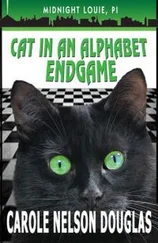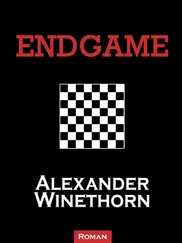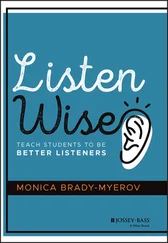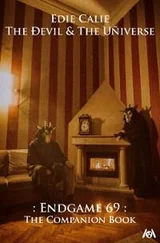Within a few minutes, Bobby donned a wide-brimmed brown leather visor, the rationale for which was so that his opponent couldn’t see what he was looking at. When it was his move, he pulled the visor way down and often rested his chin on his chest, almost as if he were a poker player secreting his cards.
Twenty years of rust aside, Bobby played as masterfully as he had in 1972: aggressive, relentless, brilliant, attacking on one side of the board and then the other. There were sacrifices of pieces on both players’ parts.
Chess players the world over were following the game through faxes and telephone contact, and their collective question was answered at Fischer’s fiftieth move. Spassky resigned. Grandmaster Yasser Seirawan wrote: “Yes, indeed, Bobby is back! A flawlessly handled game. Precise to the last moment.” News outlets that, just the day prior, had criticized Fischer for his political incorrectness now had to admit that he was more than correct on the board: “Playing forcefully, the American chess genius seems to be in top form.” But to paraphrase Aristotle, one chess game does not a champion make.
During the second game, Bobby seemed as if he was feeling his strength … until he again made his fiftieth move and this time made an atrocious error, converting the game, which he might have won, into a drawn position. In some respects he repeated the error of his ways in the third game as well: letting a potential—or at least a possible —win slip through his grasp and drift into a draw. Bobby’s comment at the end of the game was revealing in its honesty. “This was maybe an off-day for me. I hope it was an off-day for me. I was in trouble.” A scintilla of doubt had begun to insinuate itself. If the third game proved not to be just an “off-day” for him, it might be an indication that his long time away from the board was punishing him and hampering his ability to emerge as the old Bobby Fischer. The fourth and fifth games almost proved to him that he was experiencing some decline, or an accumulation of rust: He lost both.
One of the spectators at the match was the venerable Andrei Lilienthal, the eighty-one-year-old Russian grandmaster who’d lived most of his life in Hungary. He and his wife drove from Budapest to Sveti Stefan to follow the games. Lilienthal had never met Fischer, and at the conclusion of the fourth game, they were introduced at the hotel’s restaurant. “Grandmaster Lilienthal, this is Bobby Fischer,” said the person handling the introductions. The two chess giants shook hands, and Bobby boomed out, “Hastings, 1934/35: the queen sacrifice against Capablanca. Brilliant!”
The comment was so like Bobby in that he tended to remember and categorize people through their chess games, not necessarily anything else. Years later, Lilienthal was still shaking his head over Bobby’s recollection of his famous win over Capablanca more than a half century before.
After the match, Spassky wrote:
My general approach was not to think about the result of the match but how to help Bobby to restore his best form. The sixth game was critical. I was playing for a draw with white, but Bobby played so badly that I achieved a winning position. This would, of course, give me a real chance to lead with three wins and two draws!
Could Bobby withstand such a situation? I did not know and this created a difficult psychological situation for me. I wanted to win the match but I was afraid to win: Bobby could simply leave the match and abandon chess forever. This uncertainty prevented me from winning [the sixth game]. Bobby saved the game with his fighting spirit, and his creative capacity was restored. His self confidence returned and [from that point on] he began to play much better.
Over the next two months, the match’s momentum ebbed and flowed, but from the ninth game on, Bobby, scraping his way back, took the lead and held on to it. The stakes were huge: Whoever won ten games first would capture the lion’s share of the prize money and secure the “championship.” There were few Fischer tirades while playing, but Bobby continued to lose friends and make enemies as a result of his press conferences. He gave nine before the match ended, not counting brief comments that were made jointly with Spassky after each game. Some of Bobby’s controversial statements to the press:
“I think I am doing quite well, considering that I’ve been blacklisted for the last twenty years by world Jewry.”
“No, I have no regrets about spitting at that letter.”
“That man [Kasparov] is a pathological liar, so I wouldn’t pay much attention to whatever he says.”
“I sued a company called Time Incorporated.… I sued them for many tens of millions of dollars, or maybe even many hundreds of millions of dollars on many different causes of action—defamation of character, breach of contract, etc. I spent two years in court, a lot of money, a lot of my time. This was in Federal Court, by the way. Then the judge just said: ‘You have no case. I’m throwing it out without going to trial.’ [The case was not only against Time, Inc., but also Brad Darrach, the author of Bobby Fischer vs. the Rest of the World; the contract that Bobby signed was to give Darrach access to write articles, not a book. The U.S. Chess Federation was also sued because they advertised the book.]
“So I consider that the United States government and Time Incorporated went into a criminal conspiracy to cheat me out of hundreds of millions of dollars, which is the reason I have not filed and paid my Federal and California State income tax since about 1976 … since 1977, rather.”
By the time they reached the thirtieth game, Bobby had won nine games and Spassky four. Games 26, 27, 28, and 29 were all draws; it was very hard for either man to defeat the other by that time. Both men were tired. In the final game, Spassky played his twenty-seventh move—it was hopeless at that point—and then resigned. Fischer had played resolutely and won what might be described as a comfortable game.
By his own standards, Bobby was Champion of the World once again, and $3.5 million richer. He’d made what Charles Krauthammer described in Time magazine, somewhat facetiously, as the greatest comeback since Napoleon Bonaparte sailed a single-masted fleet from the island of Elba in 1815. Grandmaster Yasser Seirawan said of Fischer’s performance that it put him “somewhere in the top ten in the world.” And a few months later, on the occasion of Bobby’s fiftieth birthday, grandmaster Arnold Denker said, concerning his old friend and competitor: “True, the match with Spassky was not all that great, but after such a long lay-off, wasn’t that to be expected? Yet, he did win convincingly. A match between him and the present world champion [Kasparov] would outdraw anything yet seen, and create a publicity explosion for world chess.”
Bobby revealed that he’d be willing to play a match for the championship with Kasparov, but that he’d like to play a few training matches with younger players as a warm-up and then face Kasparov in 1994. But before Bobby could consider his next chess opponent, he had to, first, face a formidable non-chess opponent: the U.S. government. At issue were his violation of the sanctions, the fifteen years of back taxes he owed, and the taxes he potentially owed on the millions he’d just won.
At the closing banquet, Bobby was coaxed onto the dance floor for a few spins with some young Serbian women and then said some gracious words of thanks in Serbo-Croatian to his host and to the people of Yugoslavia.
After receiving the entire payment due him (within forty-eight hours of the conclusion of the match, disproving rumors that Vasiljevic would renege on the amount) Bobby by prearrangement met up with his sister, Joan, at the Belgrade Intercontinental Hotel. There was still a question concerning money due Bobby from the company that had purchased the television rights to the match—some $1 million. (Ultimately, Bobby never received any of it.) Joan took most of the match money, however, and traveled via train to Zurich, where she opened an account in Bobby’s name at the Union Bank of Switzerland. This was done because it wasn’t clear whether Bobby would be stopped at the Yugoslav border due to his violation of the sanctions and, if that were to occur, whether U.S. government officials might try to impound some, if not all, of the money.
Читать дальше
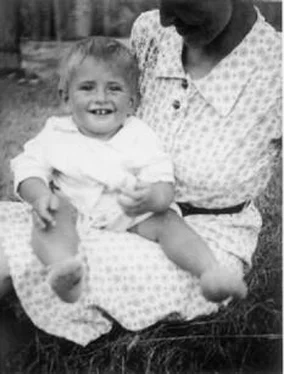

![Антон Текшин - EndGame [СИ]](/books/394477/anton-tekshin-endgame-si-thumb.webp)
